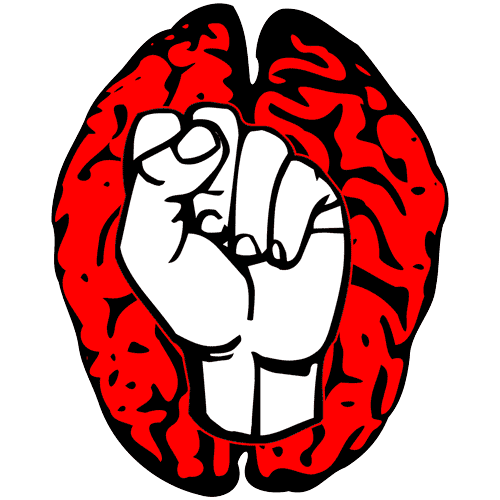The Radical Caucus of Members of the American Psychiatric Association (APA) began at the annual meeting of the APA in 1968 where a group of young psychiatrists, outraged by the ways in which the psychiatric profession was aiding and abetting the Vietnam War, called for a Radical Psychiatry as an alternative to their profession. From its early beginning, radical psychiatry was a multi-dimensional movement. To some, it meant a focus on individual freedom and an anti-authoritarianism that placed patients and therapists on an equal plane. Others focused on the impact of capitalism on the human psyche and behavior.This included a critique of racism, sexism, and the potential of psychiatry to become a force for liberation. For many, radical psychiatry involved a critique of the medical model of mental illness.Thus, radical psychiatry constituted an attack on the specialty as well as the social order (see Grob, 2011).
After several years, radical psychiatrists stopped meeting at the annual meeting of the APA, although many continued to participate in innovative clinical settings, worked with political movements, and to write about progressive approaches to psychiatry. By the late 1970s, there was increasing interest in finding a forum for radical psychiatrists to meet to share their experiences and ideas. In 1980, the Radical Caucus reconvened at the Annual Meeting of the APA in San Francisco. Since 1980, the Radical Caucus has met at the annual meeting of the APA, and has occasionally convened at the annual meeting of the Institute for Psychiatric Services, which is a community psychiatry oriented meeting that is also sponsored by the APA.
Some examples of the topics that members of the Radical Caucus have presented at the APA are listed below:
“Biological Psychiatry: A Critical Analysis”
“What are Patient Groups Doing?”
“Psychological Consequences of Political Repression”
“Transformation of Psychiatry”
“Radical Psychiatry: A 15-year Rejoinder”
“Biomedicalization of Psychiatry: A Critique”
“Poverty, Class, and Mental Illness”
“Psychiatry and New Welfare and Economic Policies”.
“Social Amnesia: Resocializing Psychiatric Research”
”Poverty and Mental Health”
“Can Social Theory be Integrated Into the Liberatory Goals Of Psychiatry?”
“Do Cognitive Psychology and Neuroscience Have Anything to Teach Us by About Morality?”
Some of the work that emerged from the session in the 1980s and early 1990s appeared in an special issue of Community Mental Health Journal entitled, Progressive Perspectives on Community Mental Health. (Community Mental Health Journal Vol. 29, No. 6, December, 1993).
In recent years, the Radical Caucus has collaborated with the United Kingdom Critical Psychiatry Network on several projects including a book,Liberatory Psychiatry. Philosophy, Politics, and Mental Health( Cambridge University Press 2008), and several symposia scheduled in 2013 at the annual meetings of the APA and the Institute of Psychiatric Services. Although our members have diverse perspectives on “Radical Psychiatry,” we are united by our belief that psychiatry can be emancipating (“liberatory’). Indeed, Pinel’s unchaining of the 18th century Parisian insane in the aftermath of the French Revolution has been an historical metaphor for the emancipatory underpinnings of psychiatry that links it to medicine and science as well as to sociopolitical circumstances. This perspective rests on two foundational points: (1) The project of psychiatry includes the promotion of emancipation; (2) Psychiatry’s principal object, the mind (psychological sphere), is inherently biological and social. Viewed from this perspective, psychiatry has a necessary role in understanding how to further liberation at the individual and social levels.
For several decades, psychiatry has pursued a narrow technological approach, focusing on specific disorders within a biomedical paradigm. This has produced important achievements. However, it has not reduced the prevalence of mental disorders nor appreciably improved long term outcomes. At the same time, there have been enormous social, economic, political, and environmental upheavals throughout the globe that have had a marked impact on psychological well-being. Psychiatry is well-positioned to explore the subjective ramifications of living in various social formations and the psychological impact of domination, alienation, or of being in a particular class, gender, or ethnic group. The prevailing biomedical/technology paradigm has been ill-equipped to address these pressing concerns. There is ample evidence that the current paradigm has reached its limits and is in crisis, and that a new paradigm is needed. An underlying theme is that a new psychiatry must assist people to be “free from” the effects of internal biological forces that contribute to mental illness but also from social circumstances that can hinder psychological development or produce psychological distress. Moreover, we envision an evidenced based “positive psychiatry” that can assist persons to be “free to” flourish and lead self-directed lives.
The Radical Caucus of the APA welcomes new ideas and new members. We want to keep creative ideas flowing within our publications, Web sites, and at conferences. Please feel free to post your comments and writings on our site.
